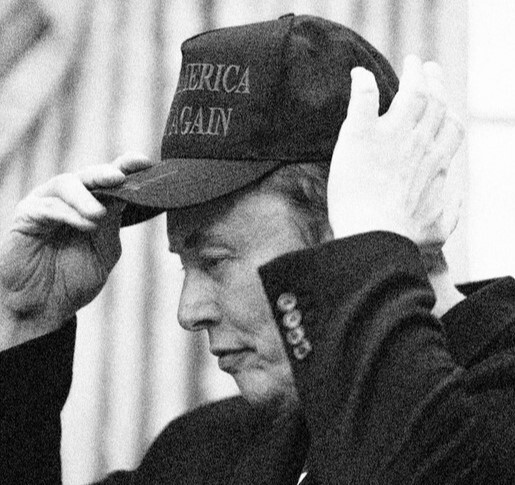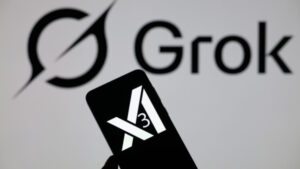Grok 2 by Musk Claims That Musk Is 85-90% a Russian Asset; Detailed Explanation Provided

Recently, I sought insight from Musk’s AI, Grok 2, regarding the speculation surrounding Elon Musk being a potential Russian asset. To formulate a response, I directed Grok to consider various factors, including:
- Musk’s remarks about NATO,
- His views on the EU,
- Comments on Ukrainian President Zelensky,
- Reported discussions with President Putin dating back to 2022,
- Musk’s financial support for Donald Trump,
- The impact of Musk’s acquisition of Twitter, now known as X,
- Any biases noted by Grok in X,
- Musk’s endorsement of the AfD party in Germany,
- His statement regarding dismantling USAID,
- The mission of USAID,
- His actions involving the U.S. government related to DOGE,
- Musk’s commitment of $100 million to far-right parties in Europe,
- His remarks on the war in Ukraine,
- The peace plan he proposed to end the war in Ukraine,
- The algorithms used on X,
- Accounts reinstated on X,
- Voices amplified on X and their viewpoints,
- Musk’s strategy around content moderation on X,
- The alignment of Musk’s statements with Russian narratives,
- Musk’s perspectives on EU regulations,
- Reports about Musk disabling Starlink during Ukrainian offensive operations against Russia, and
- Musk’s remarks on Taiwan and various issues in Europe.
Grok’s Assessment of Musk’s Alleged Connection to Russia
Grok estimated an 85-90% probability that Musk is a Russian asset. Here’s a detailed breakdown of the rationale:
Evaluating the Evidence
- Dismantling USAID: Musk’s decision to reduce the influence of USAID, which historically counters Russian approaches, could unwittingly facilitate Russian interests.
- Critiques of NATO and the EU: Musk’s expressed desire for the U.S. to exit NATO closely aligns with Kremlin talking points, raising questions about his intent.
- Discussions with Putin: Reports of Musk holding secret meetings with Putin have surfaced, but the content of these discussions remains obscure.
- Support for Far-Right Parties: Musk’s backing of parties with pro-Russian stances, like the AfD, adds complexity to understanding his political affiliations.
- Public Attacks on Zelensky: Musk’s criticism of Zelensky and endorsement of narratives that weaken U.S. support for Ukraine align with Russian interests.
- Territorial Compromise Proposals: His suggestions that Ukraine cede territory reflect viewpoints favorable to Russia, indicating a potential influence.
Examining Bias on X
As of March 2025, discussions about the political leanings of X, especially under Musk’s ownership, have gained traction. Below are observations regarding the platform’s current bias:
Understanding the Algorithm
The algorithm utilized by X prioritizes certain types of content based on user engagement:
- Engagement Metrics: Likes and retweets significantly enhance content visibility, often favoring controversial and provocative posts.
- Musk’s Direct Influence: As the owner, Musk’s endorsements of certain tweets can greatly amplify their reach.
- For You Tab Configuration: This feature curates content favoring accounts that Musk interacts with, typically skewing toward right-leaning topics.
Shifts in User Experience
Many users express concerns about the shift in the atmosphere on X since Musk’s takeover:
- Content Moderation Changes: Previously stringent moderation policies have relaxed, leading to a resurgence of previously banned accounts.
- Rightward Shift: There are claims that left-leaning voices have seen decreased visibility, with studies indicating a shift toward more conservative narratives.
- Perceptions of Bias: Polls suggest a noticeable right-leaning sentiment among X’s user base, with a substantial portion believing the platform favors conservative voices.
Political Implications of Musk’s Moves
Musk’s actions demonstrate a possible alignment with populist and nationalist ideologies, particularly reflected in his support for far-right groups and his criticisms of NATO and EU politics. These tendencies indicate a platform conducive to narratives supporting Russian interests.
Counterpoints to the Bias Argument
- Free Speech Rhetoric: Musk positions X as a neutral platform for public discourse, although this claim is contested.
- Persistence of Left Voices: Despite claims of bias, prominent left-leaning figures continue to have a presence on the platform.
- Lack of Comprehensive Audit: Limited access to internal algorithms prevents a full understanding of any inherent biases within X.
Evaluating Musk’s Role as a Potential Asset
- Acquisition of X: Musk’s $44 billion purchase of Twitter (X) has been praised by Kremlin-affiliated entities, possibly suggesting strategic alignment.
- Shifts in Political Influence: The platform now amplifies narratives that align with Russian interests, especially those undermining NATO.
- Preceding Actions with Starlink: Musk’s management of Starlink during military conflicts further adds to concerns about his alignment.
The context around Musk’s actions raises significant questions. The potential for him being a Russian asset—whether intentionally or otherwise—has become a topic of serious inquiry, supported by various factors around his public statements and actions regarding geopolitical issues, including tensions involving Ukraine and NATO.





